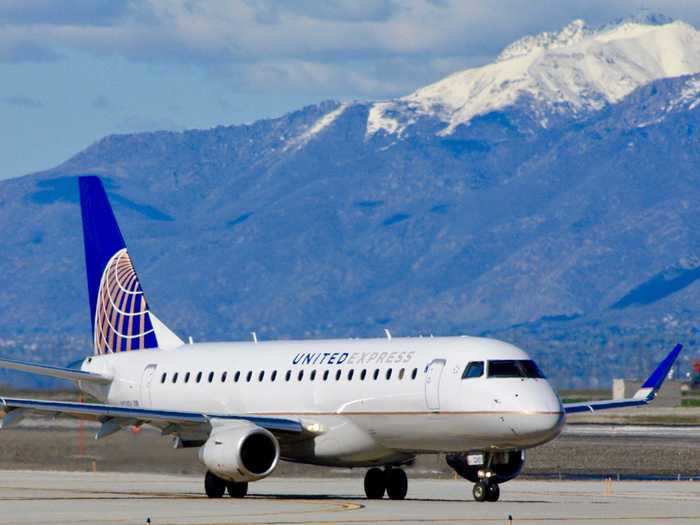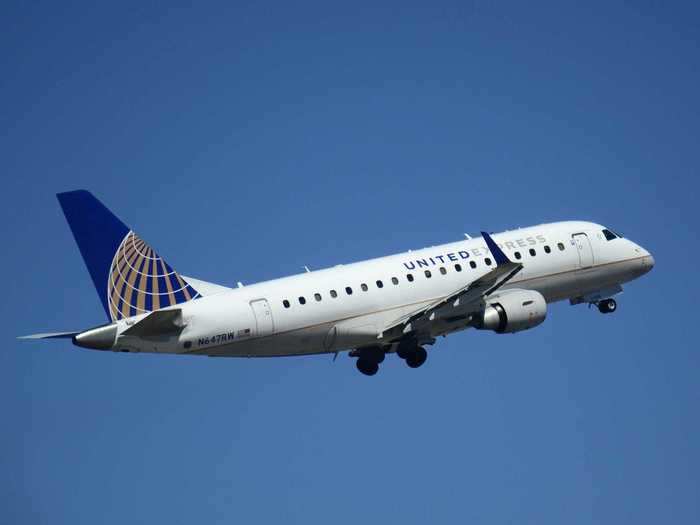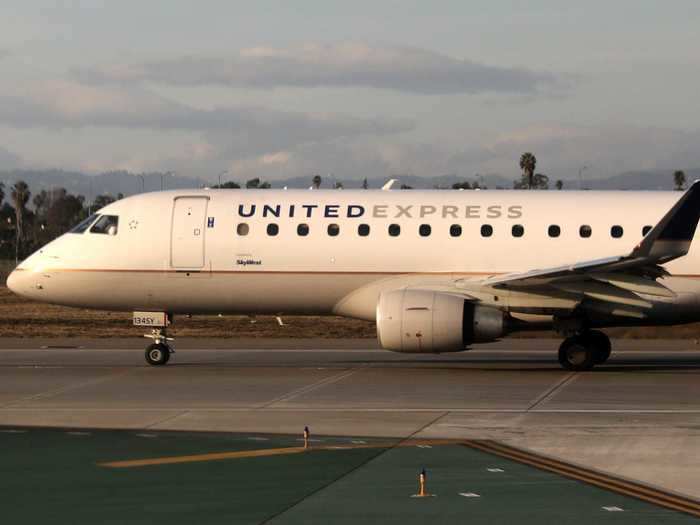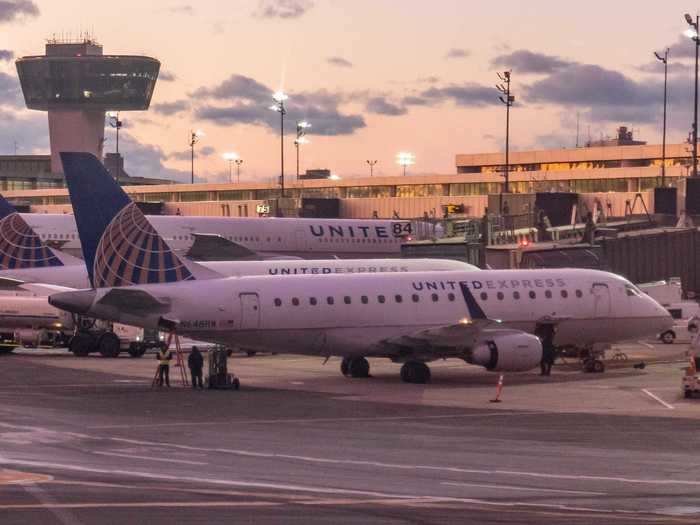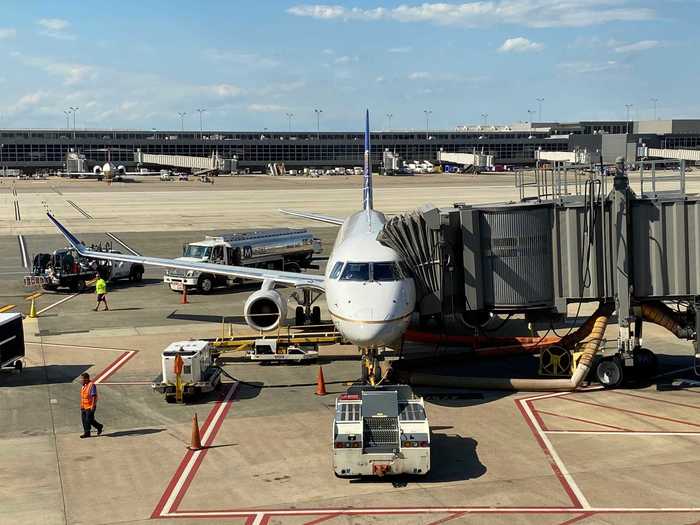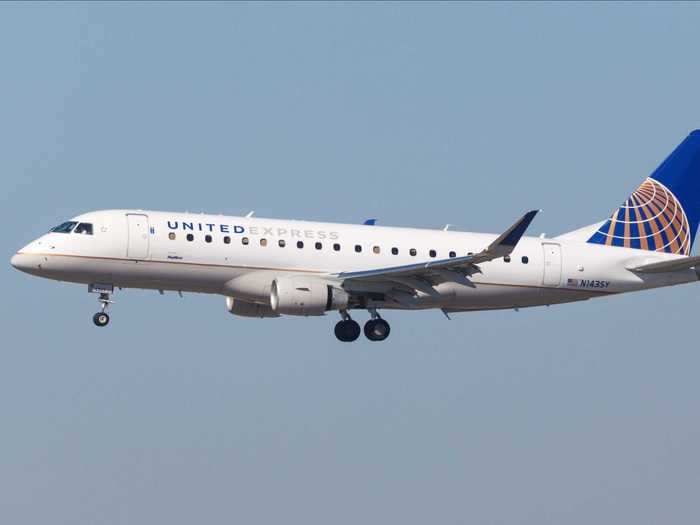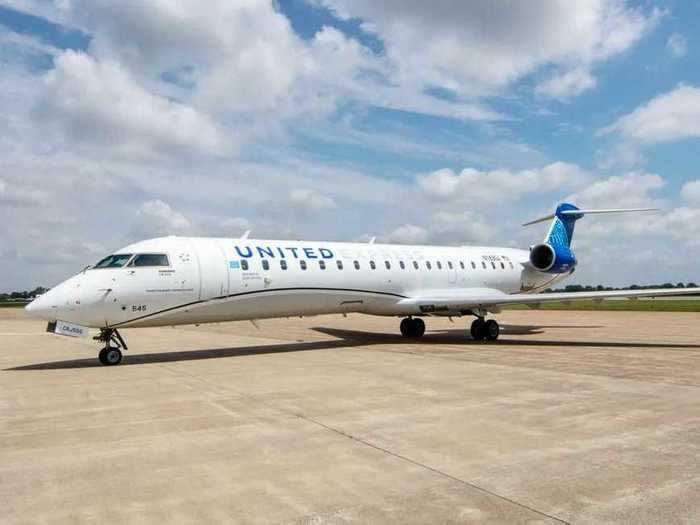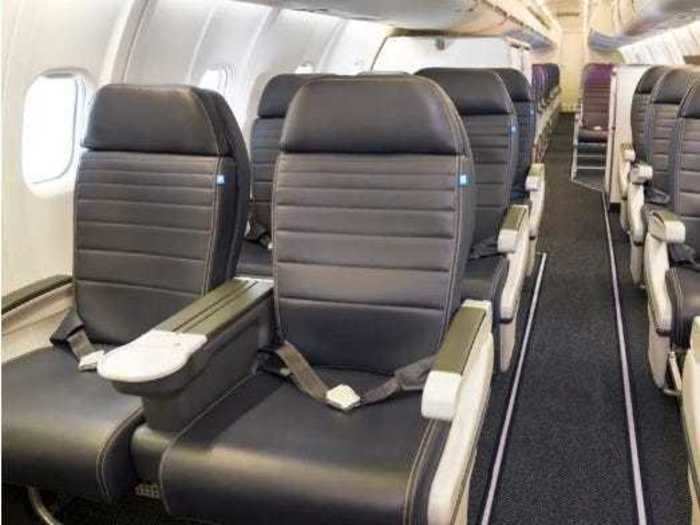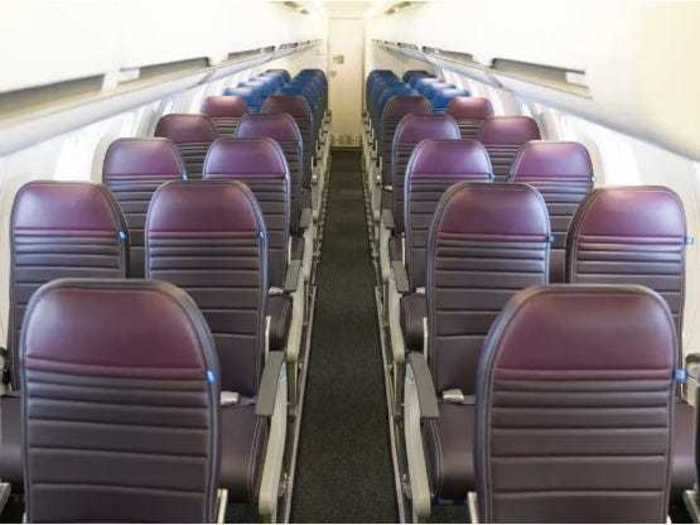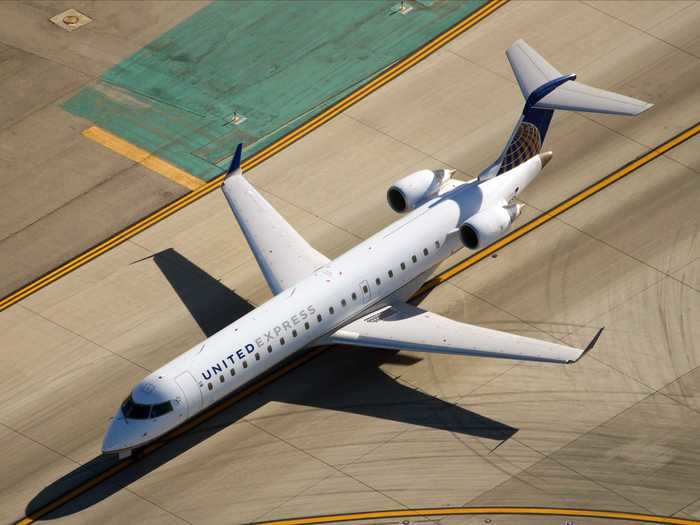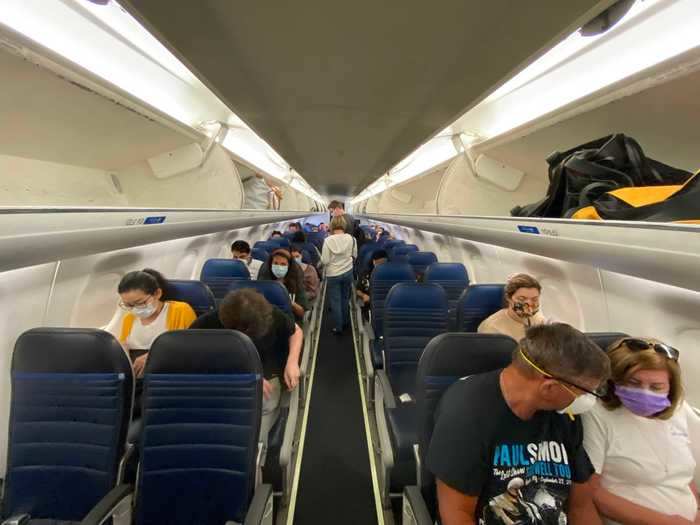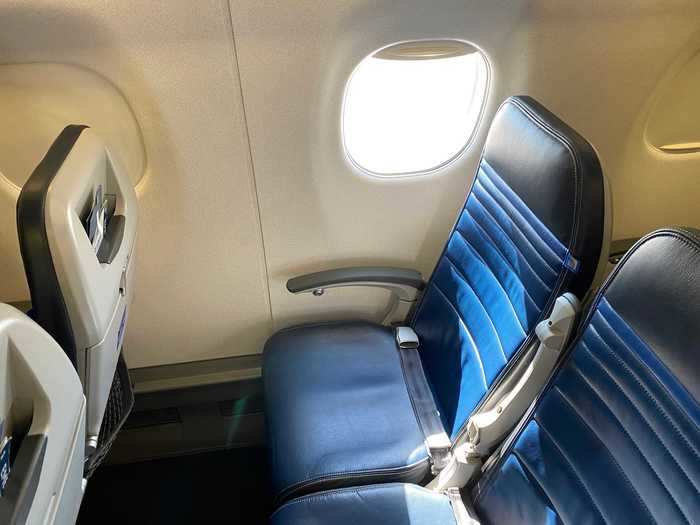A United Express E175 aircraft.Lucy Nicholson/Reuters
- United is reducing seats on its Embraer E175 aircraft from 76 to 70 to comply with a clause of its pilot union contract, FlightGlobal reported.
- The "scope clause" in the contract limits the role of regional aircraft, preventing United from outsourcing too many flying jobs to its smaller partner airlines.
- October 1 will likely see the airline begin to furlough pilots, at which point regional jets will need to be compliant to the new restrictions under the clause.
United Airlines' Embraer E175 aircraft are heading to the maintenance hangar for a retrofit that will actually reduce their total number of seats.
The largest regional jets operated under the United Express brand will purposely be made less economical to fly thanks to what's known as a "scope clause" in United's pilot contract, FlightGlobal reported. The six-seat reduction from 76 to 70 seats on all of its Embraer E175s is mandatory per the contract as United plans to furlough pilots – which triggers the seat removal, United told AviationWeek – after assistance under the CARES Act vanishes on October 1.
Though it seems counterintuitive to make a plane less capable of generating revenue during the pandemic – considering United has committed to filling its planes to capacity – the move is actually protecting United's pilots. As part of a deal with the pilot union, United can have 255 regional jets that seat greater than 50 and no more than 76 seats, according to FlightGlobal.
The reduction in demand that the pandemic has inflicted would have made regional jets more attractive to fly since they carry fewer passengers further at a lower cost than mainline jets. But having those scope limitations in place is preventing United from outsourcing its mainline operation to the regional partners.
Here's how it hurting and helping passengers.
Regional jets have become more prominent on longer routes, crossing numerous regional boundaries with flights of over four hours in duration on some routes.
A United Express Embraer E175 regional aircraft.
Austin Deppe / Shutterstock.com
As regional jets increased in size, they've become a threat to mainline aircraft since they could fly fewer passengers in similar levels of comfort. The Embraer E175, for example, has a larger cabin than the CRJ fleet formerly of Bombardier.
A United Express Embraer E175 regional aircraft.
Robert Alexander/Getty
United's longest regional flights, on which it has relied upon the Embraer E175 to operate, include Hartford, Connecticut to Houston, scheduled at over 4 hours...
A United Express E175 aircraft.
Lucy Nicholson/Reuters
Madison, Wisconsin to San Francisco, scheduled at over 4 hours and 30 minutes...
A United Airlines Embraer E175 regional jet.
Nicolas Economou/NurPhoto/Getty
And St Louis to San Francisco, also scheduled at over 4 hours and 30 minutes.
A United Express Embraer E175 regional aircraft.
Thomas Pallini/Business Insider
Even though it wanted to expand the use of the jets, United hit its scope clause limit of 70-76-seat regional jets in 2017 and couldn't get the unions to allow for more.
A United Express Embraer E175 regional aircraft.
Markus Mainka / Shutterstock.com
So, the airline concocted a new 50-seat regional jet, the Bombardier CRJ550, to get around the scope clause.
A United Express Bombardier CRJ550 regional aircraft.
United
Instead of maxing out at 70 seats, United loaded it with an abundance of first class and extra-legroom seating and increase regional flying to competitive markets.
A United Express Bombardier CRJ550 regional aircraft.
United Airlines
The contract doesn't regulate 50-seat aircraft as strictly as it does 70 and 76-seaters, giving United more flexibility with the new plane.
A United Express Bombardier CRJ550 regional aircraft.
United Airlines
Passengers can rest easy knowing that United won't be ushering in hundreds of more regional jets to take over mainline routes since the scope forbids the airline from doing so.
A United Express Bombardier CRJ 700.
Fabrizio Gandolfo/SOPA Images/LightRocket/Getty
The downside, though, is that having fewer available seats makes social distancing even harder to accomplish on regional jets and more flights will likely be filled closer to capacity, as a result.
A United Express Embraer E175 regional aircraft.
Thomas Pallini/Business Insider
As Business Insider found on a recent United Express flight from Washington to New York on an Embraer E175 operated by Mesa Airlines, United isn't blocking any seats and aircraft can be filled to capacity if demand dictates.
A United Express Embraer E175 regional aircraft.
Thomas Pallini/Business Insider
Removing six seats on the jets equates to removing one and a half rows in economy and United seat maps have already been reflected with the change.
A United Express Embraer E175 regional aircraft.
Thomas Pallini/Business Insider

